Tutorial Learning System
The SAT program is more than just a secondary education program—it is an educational innovation that expands the very meaning of learning. At its core, SAT helps young people understand their role as promoters of community well-being, equipping them with the knowledge, skills, and vision to engage meaningfully with the processes of community life and contribute to its advancement.
What makes SAT unique is its integrative approach. Its texts are designed not only to teach academic content, but also to connect theory with practice, traditional wisdom with modern knowledge, the abstract with the concrete, and the spiritual with the material. The program bridges the social and the technical, with all learning oriented toward service, productive work, and community development.
The SAT system is designed to be flexible and adaptable, making it possible to implement in a wide variety of local contexts. Its main components include:
Curriculum – A carefully developed set of texts that encourage dialogue, inquiry, and a deep connection between knowledge and practice.
Student Groups – A collaborative learning community where young people study the texts together and carry out real-world projects.
The Tutor – A trained guide who accompanies the group, helping students connect academic learning with community life.
Interdisciplinary Team – Provides administrative and technical coordination to support a defined network of SAT groups across one or more communities.
Local Institution – A development or educational institution formally responsible for implementing SAT in its region.
Collaboration with FUNDAEC – Ensures ongoing curriculum development, training of tutors, and the preparation of advisors and coordinators.
COLOMBIA
The SAT program has been implemented through the joint efforts of FUNDAEC and numerous institutions that, in each region, have studied its content and methodology, contextualized it, contributed to its refinement, and worked with educational authorities to secure its application and funding. Over time, SAT has reached 46% of Colombia’s municipalities, in collaboration with approximately 60 public and private organizations.
The SAT Around the World
Over the course of five decades, SAT has transformed the lives of more than 300,000 students and was, at one point, officially recognized as a secondary education system by the governments of Colombia, Honduras, Brazil, Ecuador, and Nicaragua.
Beyond these countries, SAT’s materials are being applied successfully through the Preparation for Social Action (PSA) program, which today operates in 17 countries across Africa, Asia, Latin America, and the Pacific, serving over 10,000 participants.
The international impact of SAT has been recognized through multiple honors, including:
The Tutorial Learning System (SAT) brings together a set of conceptual and practical features that give it the character of a true educational innovation:
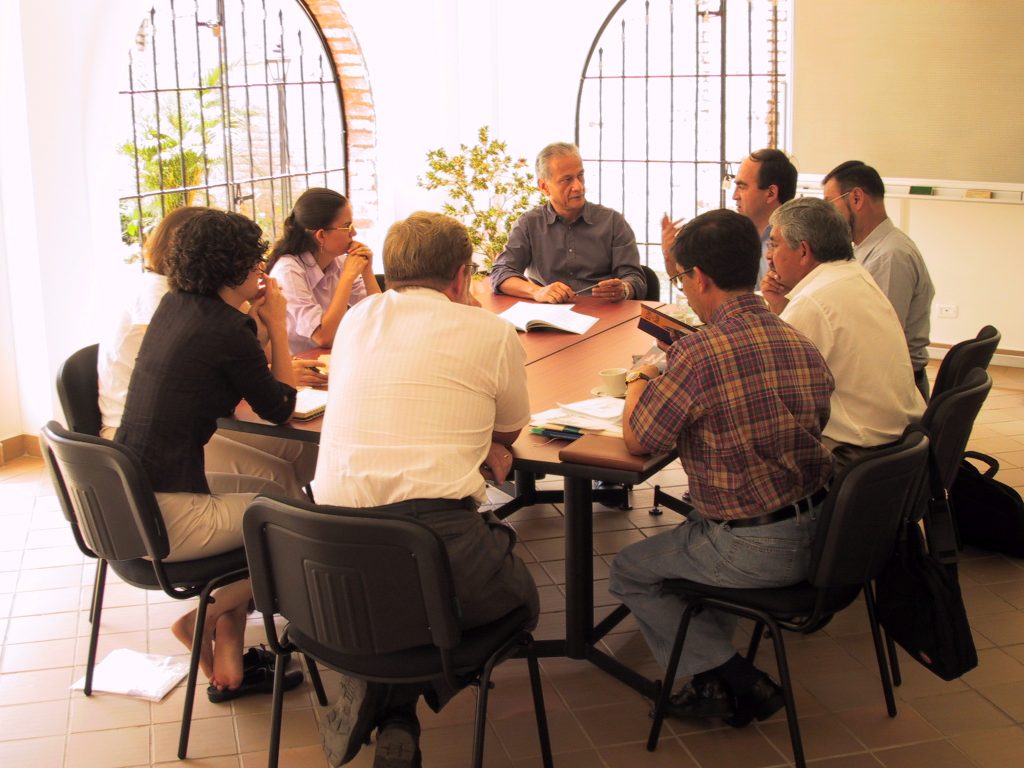
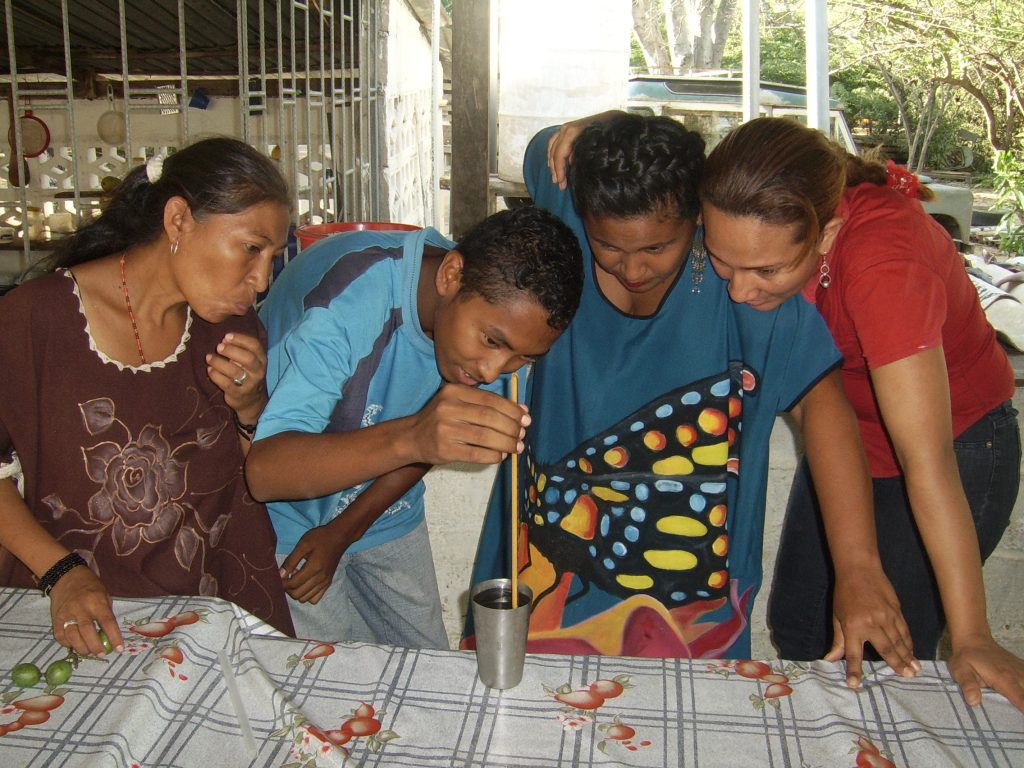
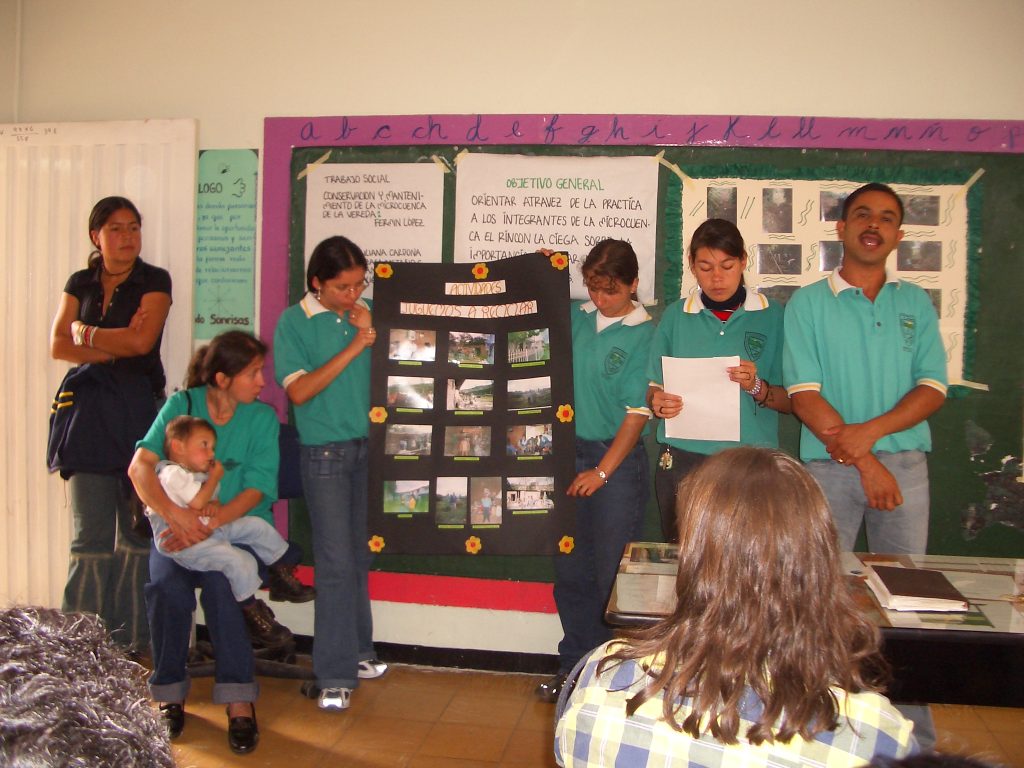

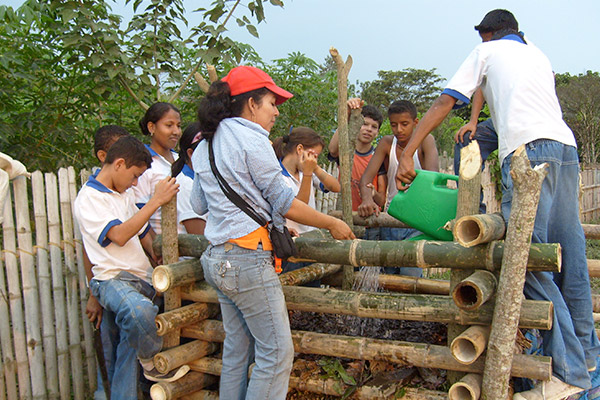

The Tutorial Learning System (SAT) is structured into three progressive levels, each lasting two years: Impulsor, Práctico, and Bachiller en Bienestar Rural. The SAT is a stackable modular educational program comprising three stand-alone yet interconnected levels increasing levels of knowledge, skill, and leadership.
The curriculum is built around 70 carefully developed texts, which move beyond the conventional subjects of secondary education. Instead, they focus on five fundamental areas of human capacity:
Two core educational principles give the curriculum its distinctive strength:

The SAT system is built on five interconnected elements, each playing a vital role in ensuring that education remains rooted in community life while maintaining academic rigor and practical impact.
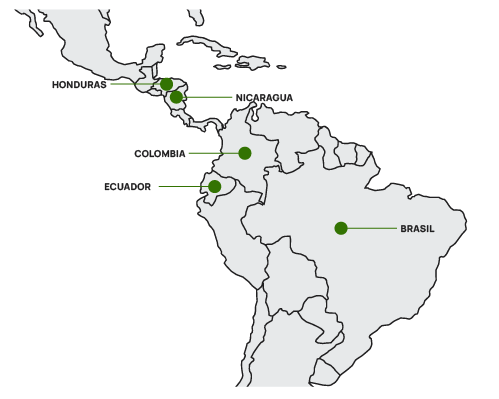
Since its adoption in 1988 by a growing network of public and private organizations, the SAT program has evolved into a pioneering rural education system. What began as a localized initiative has expanded into a movement that has transformed opportunities for young people in underserved regions.
Today, SAT has reached more than 300,000 students in Colombia and across Latin America, offering not just access to secondary education but a model that links learning directly with community development. Through this expansion, SAT has become a proven example of how education can drive social transformation, inspire self-reliance, and equip rural populations with the tools to shape their own futures.
Over the years, Colombia’s education authorities at the national, departmental, and municipal levels have formally recognized and approved the SAT program.
In its early stages, authorizations were granted directly to FUNDAEC, which was responsible for developing the curriculum and validating each level of the educational ladder within the framework of its Action-Research-Learning methodology—first in Northern Cauca, and soon after in Valle del Cauca.
As the program expanded, the institutions that adopted SAT in their regions initially operated under FUNDAEC’s licenses and approvals. At the same time, they advanced their own processes with local departments of education to secure independent, official recognition, ensuring that SAT could be formally established and sustained across diverse contexts
Number | Date | Subject |
4730 | April 1978 | Authorizes the Foundation for the Application and Teaching of Science (FUNDAEC) to implement an experimental program for Lower Secondary and Upper Secondary Education. |
11049 | August 4, 1978 | Grants approval for the first course of the first stage of the Experimental Plan being carried out in the village of La Arrobleda, Santander de Quilichao (Cauca), by FUNDAEC. |
1121 | February 7, 1979 | Grants approval for the second course of the first stage of the Experimental Plan being carried out in La Arrobleda, Santander de Quilichao (Cauca), by FUNDAEC. |
01278 | February 4, 1980 | Grants approval for the third course of the first stage of the Experimental Plan being carried out in La Arrobleda, Santander de Quilichao (Cauca), by FUNDAEC. Article Two of this Resolution states: “The Foundation for the Application and Teaching of Science (FUNDAEC), based on this approval, may award the title of Agricultural High School Graduate (Bachiller Agropecuario) to students who have completed and passed the corresponding courses.” |
2393 | March 25, 1988 | Grants approval for the studies corresponding to the IMPULSOR Level, equivalent to grades 6 and 7 of Lower Secondary Education, with an agricultural orientation, which FUNDAEC has been implementing in rural communities across various municipalities in the country and which will soon be extended further. |
0116 | March 12, 1996 | Authorizes experimentation and defines the criteria for the development of the Tutorial Learning System (SAT) as a strategy for Lower Secondary and Upper Secondary Education in the Department of Valle del Cauca. |
Number | Date | Subject |
4963 | September 27, 1991 | By which the Tutorial Learning System (SAT) is recognized as a strategy for Basic Secondary and Vocational Middle Education in the Department of Santander, and its operation is regulated, issued by the Government of Santander. |
0281 | May 28, 1993 | By which the Tutorial Learning System (SAT) is adopted for the development of the Baccalaureate in Rural Well-Being in the Department of Risaralda, issued by the Government of Risaralda. |
1052 | March 18, 1994 | By which the SAT is adopted for the development of the Baccalaureate in Rural Well-Being in the Department of Antioquia, issued by the Government of Antioquia. |
669 | June 21, 1994 | By which the SAT is adopted for the development of the Baccalaureate in Rural Well-Being in the Department of Tolima. Ibagué, Secretariat of Education and Culture of the Department of Tolima. |
001339 | December 18, 1995 | By which the Tutorial Learning System (SAT) is adopted for the development of the Baccalaureate in Rural Well-Being in the Department of Norte de Santander, issued by the Government of Norte de Santander. |
0116 | March 12, 1996 | By which experimentation is authorized and criteria are defined for the development of the Tutorial Learning System (SAT) as a strategy for Basic Secondary and Middle Education in the Department of Valle del Cauca, issued by the Secretariat of Education of Valle del Cauca. |
0238 | May 21, 2001 | By which the Tutorial Learning System (SAT) is adopted in the Department of Putumayo, issued by the Government of Putumayo. |
1645 | September 2, 2002 | By which criteria are defined for the functioning of the SAT in the Department of Cauca, issued by the Secretariat of Education and Culture of Cauca. |
Number | Date | Subject |
008 | August 11, 1993 | Decree implementing the Sistema de Aprendizaje Tutorial (SAT) in the Department of Santander to expand secondary and vocational education in the rural sector, issued by the Government of Santander. |
699 | November 30, 1993 | Decree approving studies of an experimental nature and granting approval for a two-year period to the Impulsor and Práctico levels of the SAT Rural Well-being Baccalaureate, issued by the Departmental Secretariat of Education of Risaralda. |
009073 | September 21, 1994 | Decree establishing criteria for the functioning of the SAT in the Department of Antioquia, issued by the Department of Education and Culture of Antioquia. |
823 | November 22, 1996 | Decree granting approval of studies under the framework of educational innovations for grades 10 and 11 of the SAT Rural Well-being Baccalaureate, issued by the Departmental Secretariat of Education of Risaralda. |
814 | October 29, 1997 | Decree granting approval of studies for the 1997 academic year for grades 10 and 11 of the official SAT Rural Well-being Baccalaureate program, issued by the Departmental Secretariat of Education of Risaralda. |
237 | May 25, 1999 | Decree granting a license to operate and develop the SAT Rural Well-being Baccalaureate program in Risaralda, issued by the Departmental Secretariat of Education of Risaralda. |
Number | Date | Subject |
0566 | March 21, 1996 | Resolution granting an Initial License to begin operations and functioning of the Instituto Docente de Educación Formal Campesina “Francisco de Asís”, with a Rural Well-being modality using the Sistema de Aprendizaje Tutorial (SAT) for rural campesino education, issued by the Government of Caquetá. |
3384 | September 15, 1999 | Resolution granting official recognition of studies to the educational institution Centro Docente en Bienestar Rural, located in the township of Papayal Cajambre, Municipality of Buenaventura, issued by the Departmental Secretariat of Education. |
3385 | September 15, 1999 | Resolution granting official recognition of studies to the educational institution Centro Docente de Bienestar Rural, located in the township of San Antonio Yurumanguí, Municipality of Buenaventura, issued by the Departmental Secretariat of Education. |
004059 | November 26, 1999 | Resolution granting official recognition of studies to the educational institution Centro Docente Bachillerato en Bienestar Social, located in the township of San Antoñito, Municipality of Buenaventura, issued by the Departmental Secretariat of Education of Valle del Cauca. |